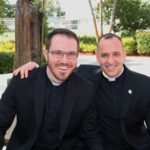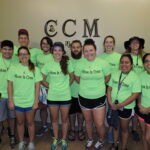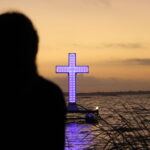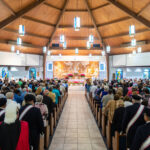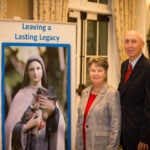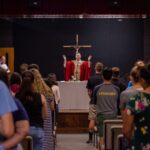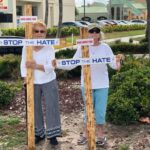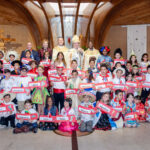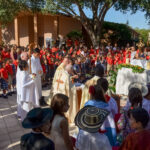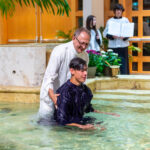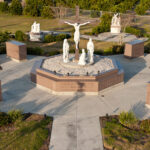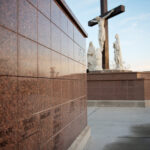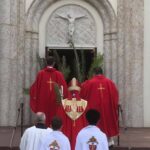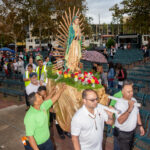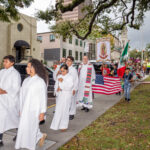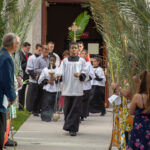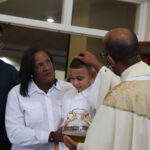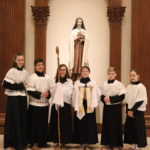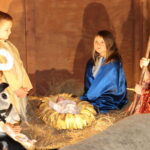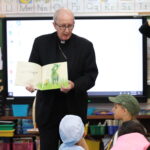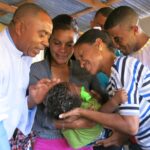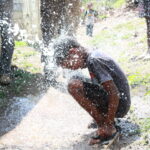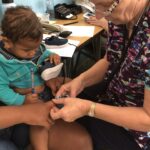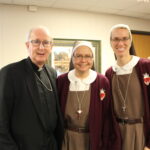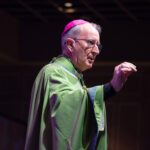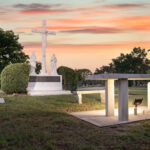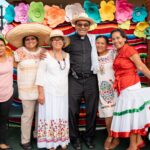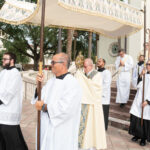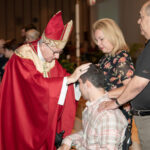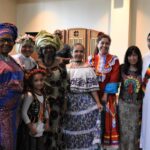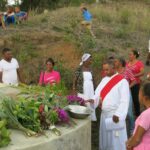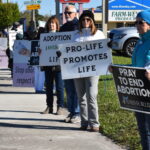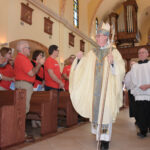Katharine Mary Drexel was born in Philadelphia on November 26, 1858 to a very wealthy family. Her father was an extremely successful banker. Her mother did not work and sadly died 5 weeks after giving birth to her.
Growing up she experienced luxury, she never attended public school because she had private tutors that would come to her home, she traveled frequently to Europe and around the United States, riding in private coaches on trains, and she never had to worry about money. Her father and stepmother were devout Catholics. Her father prayed for 30 minutes every evening and three times a week they opened their home up to the poor to give clothing, food and financial assistance to those in need.
She had a profound experience that changed her and her future. When she nursed her stepmother through a three-year terminal illness, she realized that her family’s money could not buy safety from pain or death.
This emotional experience inspired her to help the most vulnerable in America. She was moved as to how poorly Native Americans and African Americans were treated. She began a lifelong personal and financial support of numerous missions and missionaries to help Native Americans and African Americans.
When her father died in 1886, he left behind $15.5 million dollars to be divided between his three daughters. Today, that would be equivalent to $425 million.
In January 1887 Katharine was received in a private audience by Pope Leo XIII. She explained to him how poorly the Native Americans and African Americans were treated and how she wanted to help them. So, she requested that he send missionaries. To her surprise, the pope suggested that she become a missionary herself.
After much discernment, in May of 1889 she entered the Sisters of Mercy Convent in Pittsburgh. The local headlines of newspapers read, “Miss Drexel Enters A Catholic Convent – Gives Up Seven Million.” A few years later in 1891 she founded the religious congregations, the Sisters of the Blessed Sacrament. Her community devoted themselves as missionaries to the Native Americans and African Americans.
Her religious community opened a boarding school, St. Catherine’s Indian School, in Santa Fe, New Mexico. Katharine bought 160 acres of land in Arizona and New Mexico. With the help from some Franciscans in Cincinnati, Ohio they served the Navajos.
A few years later she financed the work of the Franciscans among the Pueblo Native Americans in New Mexico. In 1910, she financed 500 copies of the Navajo-English Catechism of Christian Doctrine for the use of Navajo Children.
In all, Katharine established 145 missions, 50 schools for African Americans, and 12 schools for Native Americans. Among one of her biggest accomplishments was the founding of the first African American University, Xavier university of Louisiana.
Katharine was canonized a saint by St. Pope John Paul II on October 1, 200 as the second natural-born U.S. citizen saint.
The Vatican cited fourfold aspects of Katharine’s legacy:
- A love of the Eucharist and Perspective on the unity of all peoples
- Courage and initiative in addressing social inequality among minorities – one hundred years before such concern aroused public interest in the United States
- Her belief in quality education for all and efforts to achieve it
- Her selfless service, including the donation of her inheritance, for the victims of injustice
St. Katharine Mary Drexel is the patron saint of Philanthropy. The Catholic Foundation of Central Florida is proud to have her as our patron. We strive to emulate her work by serving those who are most in need in the nine counties that encompass the Diocese of Orlando.
Our Philanthropic Efforts
Below are images taken throughout the Diocese of Orlando
that highlight our philanthropic efforts.
